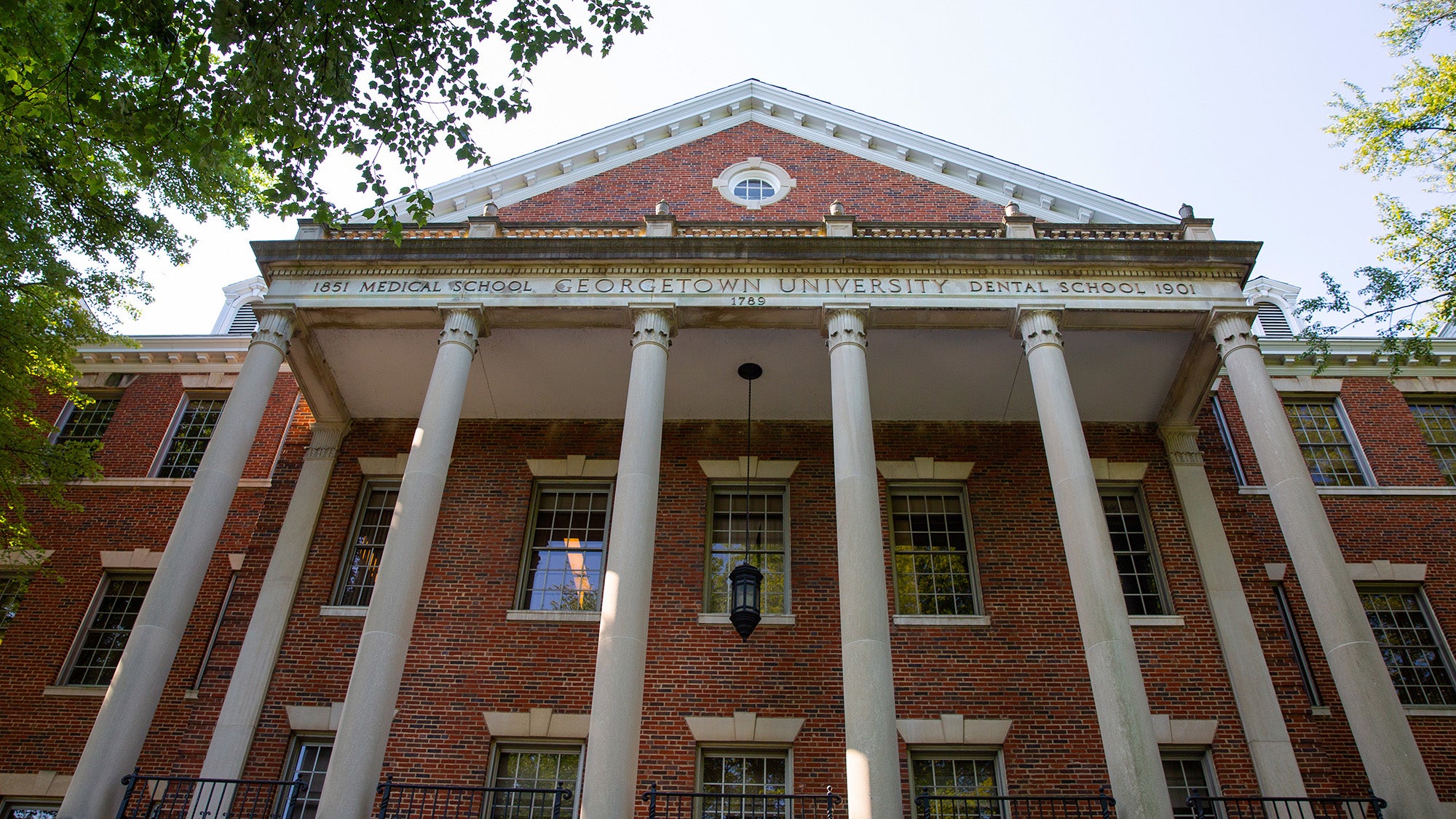Expanding Opportunity for Future Physicians Through the Mitchell Scholars Fund
(November 19, 2025) — For aspiring physicians, the financial cost of medical education can be a significant hurdle. At Georgetown’s School of Medicine, the Mitchell Scholars Endowed Fund helps to lower that barrier, ensuring that a select group of students with demonstrated financial need and a deep commitment to serving communities in need can focus on their training.
Established by nearly 300 alumni of the School of Medicine to honor Stephen Ray Mitchell, MD, dean emeritus for medical education at Georgetown, the fund recently surpassed its initial $1 million goal. The fund provides vital tuition support for 12 medical students, three per cohort. The critical impact of the scholarship is reflected in the journeys of its recipients.
“I felt extraordinarily lucky when I received my financial aid packet my first year and saw that all tuition and fees were covered because I was a Mitchell Scholar,” said Perry Diaz (M’26).
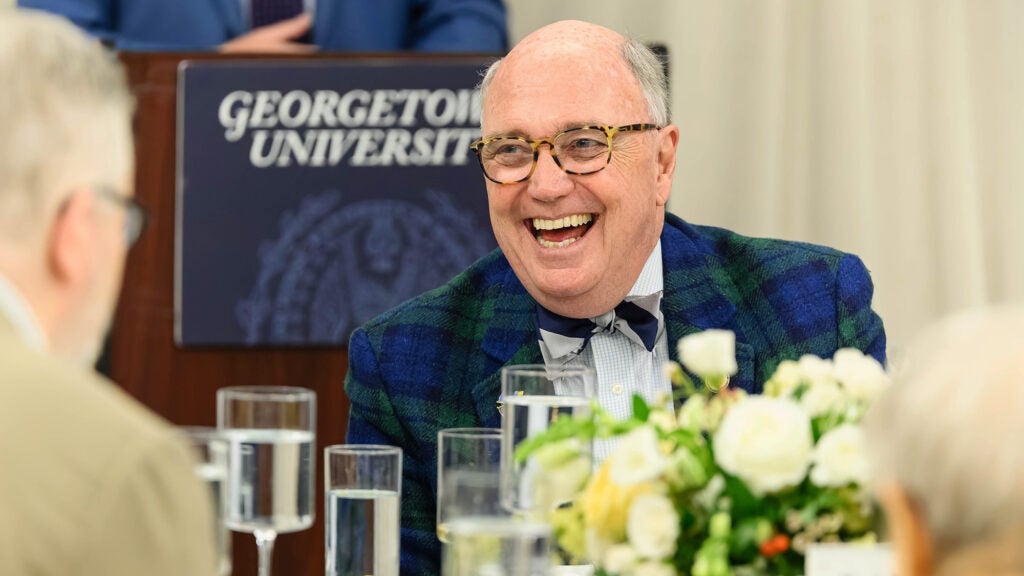
Nearly 300 alumni of the School of Medicine created the Mitchell Scholars Endowed Fund in honor of Stephen Ray Mitchell, MD, dean emeritus for medical education, pictured here at a recent event for scholarship donors and recipients.
More Than Money
While growing up in Belize, Diaz would spend nights at the hospital where his mother was a nurse, fascinated by what surrounded him. He came to the United States at age 17 to attend college and sought a career in medicine after studying engineering. After completing Georgetown’s Experimental Medical Studies Programs (GEMS), Diaz enrolled in the School of Medicine.
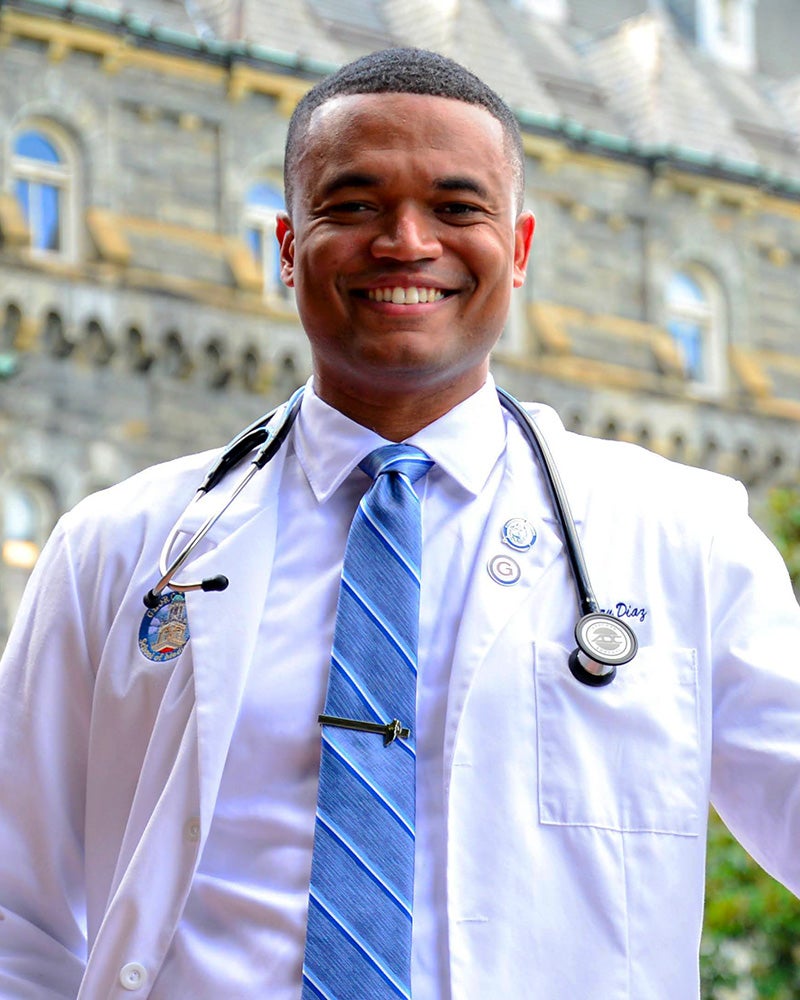
Perry Diaz (M’26)
“I first met Dr. Mitchell while I was a student in GEMS, and even more beneficial to my success in medical school than the scholarship has been the conversations I’ve been able to have with Dr. Mitchell,” said Diaz. Diaz identified with part of Mitchell’s background as the first in their family to go to medical school, and sought out his mentorship throughout his time at Georgetown.
“The scholarship really allowed me to focus on school and invest time in activities outside of the classroom like HOYA Clinic,” said Diaz. “Especially during my first two years, where I was able to visit Capitol Hill and be in the moment as a physician-advocate and not have to worry so much about how to just pay for everything, because medical school is expensive.”
Diaz, who is now in his fourth-year of medical school and is pursuing vascular surgery as his specialty, intends to pay forward his good fortune to the next generation of non-traditional medical students by going out his way to “aggressively mentor” these students.
“This is the stuff that levels the playing field,” Diaz said. “It made it possible to have the funds to fly around the country for interviews — things that can be limiting financially.”
Working to Close Gaps in Health Disparities
For Amani Wilson (M’29), the scholarship means being able to fully commit to her lifelong dream of becoming an obstetrician and gynecologist (OB-GYN). She developed an interest in medicine when she was 8 years old after watching her own birth tape. Her interest in OB-GYN only grew after a formative shadowing experience.
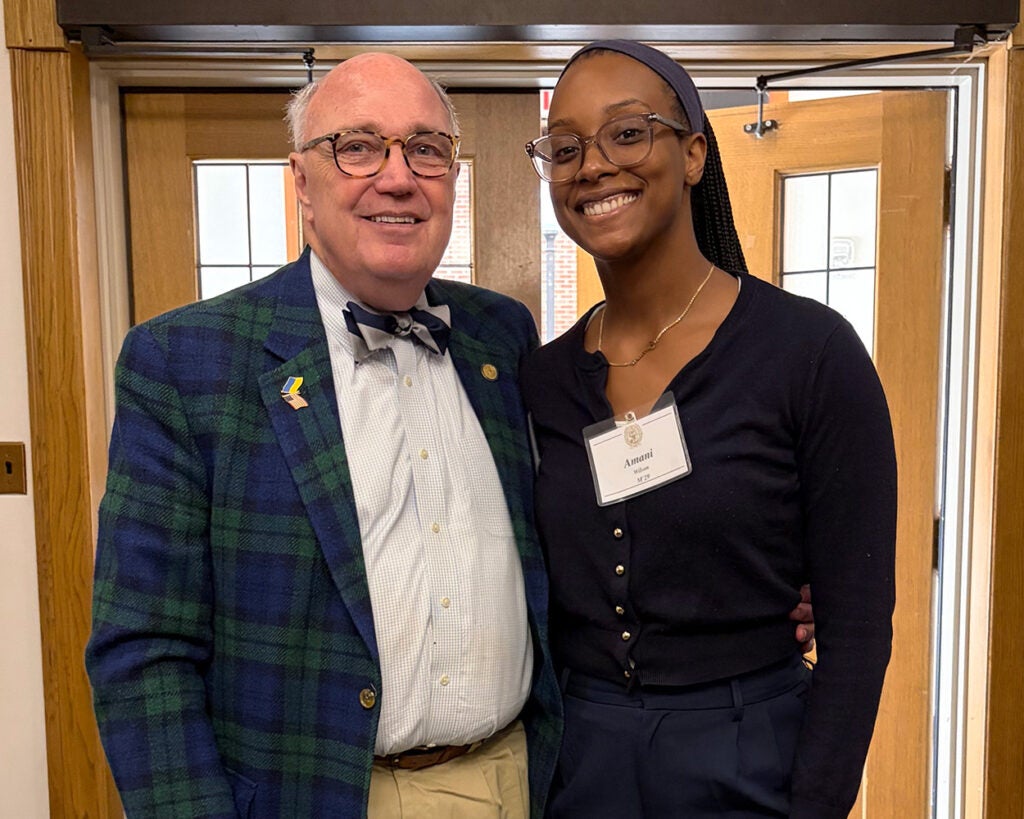
Dr. Mitchell and Amani Wilson (M’29)
“It was so inspiring to see a Black woman who looks like me, caring for people who look like her as an OB-GYN,” said Wilson. “As I began my journey in medicine, I learned more about health disparities that Black communities experience, and I discovered research articles that show Black individuals’ life expectancy increases when they are seen by a Black physician, showing the value of representation.”
In deciding where to pursue her medical studies, Wilson was drawn to Georgetown’s School of Medicine because of its commitment to holistic care, racial justice and addressing health inequities. Wilson, who like Diaz is also a GEMS alum, credits her time in the program for her success in medical school. “GEMS is a phenomenal program,” said Wilson.
Raised by a single mother, Wilson worked three jobs while pursuing her undergraduate degree. “As you can imagine, money, for a lack of better words, was always ‘tight,’” said Wilson. “Receiving this scholarship has meant I did not have to sacrifice my dream simply because I was born less fortunate than others.”
During her first year, the scholarship has allowed Wilson to focus on her studies and feels “beyond grateful” to be a Mitchell Scholar. Wilson plans to return to underserved communities to practice as an OB-GYN and “be on the side of history that closes gaps in health disparities.”
It Takes a Village
Delisia Wicks (M’26), a Health Justice Scholar, brought her experience growing up in Port Gibson, Mississippi, a close-knit community where residents cared deeply about one another despite being in a medically underserved area, to Georgetown. “In my community growing up, I saw people getting very sick and dying early, and I began to question what was happening to cause these illnesses and that initially sparked my interest in medicine,” said Wicks.
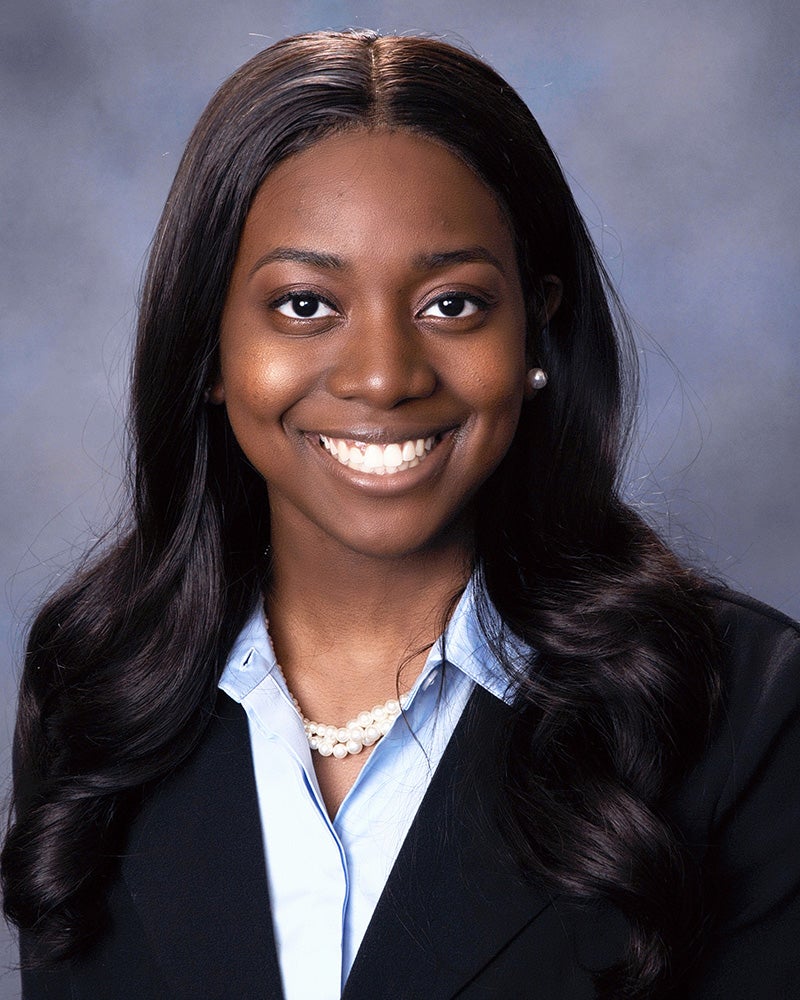
Delisia Wicks (M’26)
Her undergraduate minor in medicine, health, and society from Vanderbilt University gave her the language to talk about the social determinants of health. She was interested in pursuing her medical studies at Georgetown because of the Health Justice Scholar Track.
“Beyond the financial relief, the scholarship means so much because it tells me there’s a group of people who believe in me and my purpose in life, and that really keeps me going,” said Wicks. “Medical school is really difficult, and it can shake my belief in myself, but I have returned to the fact that there’s this whole village of people who have poured into me these resources, and their belief in me keeps me going.”
The scholarship also provided Wicks the intellectual freedom to explore specialties and choose her career field based purely on interest and fit. Wicks has chosen radiology for her specialty, where she sees an opportunity to improve timely diagnoses and ensure accessibility to screening tests like mammograms for marginalized patients.
Advocacy and Innovation
Brandon Ehrlich (M’29) pursued medicine as a career after serving as the primary advocate for his mother, who battled mental illness and cancer, as well as for his father, who also battled cancer. The ongoing cancer treatments put financial strain on Ehrlich’s family, but also instilled a desire in him to pursue medicine and become a physician who “not only treated patients, but also supported families through uncertainty and fear.”
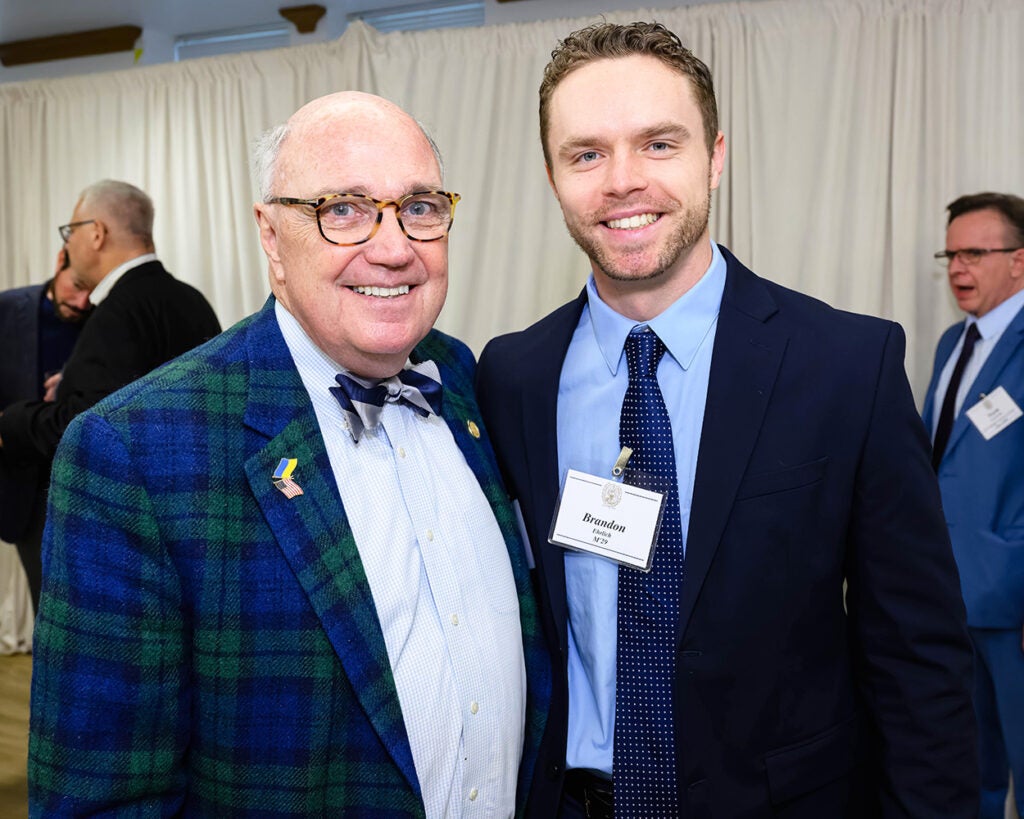
Dr. Mitchell and Brandon Ehrlich (M’29)
Ehrlich described finding out that he had received the Mitchell Scholarship as a “financial relief.” “This scholarship has lifted a significant financial burden, allowing me to focus fully on becoming the kind of physician I needed growing up,” Ehrlich said.
Ehrlich, who is currently drawn to family medicine and psychiatry, views scholarships as a key investment. “They make it possible for students from all walks of life to bring their experiences, their heart, and their ideas into medicine,” he said. “That kind of diversity isn’t just meaningful, but transformative for the health care system.”
To learn more about the Mitchell Scholars Endowed Scholarship Fund or to contribute to student scholarships, please visit the Medical Education Giving page.
Heather Wilpone-Welborn
GUMC Communications
